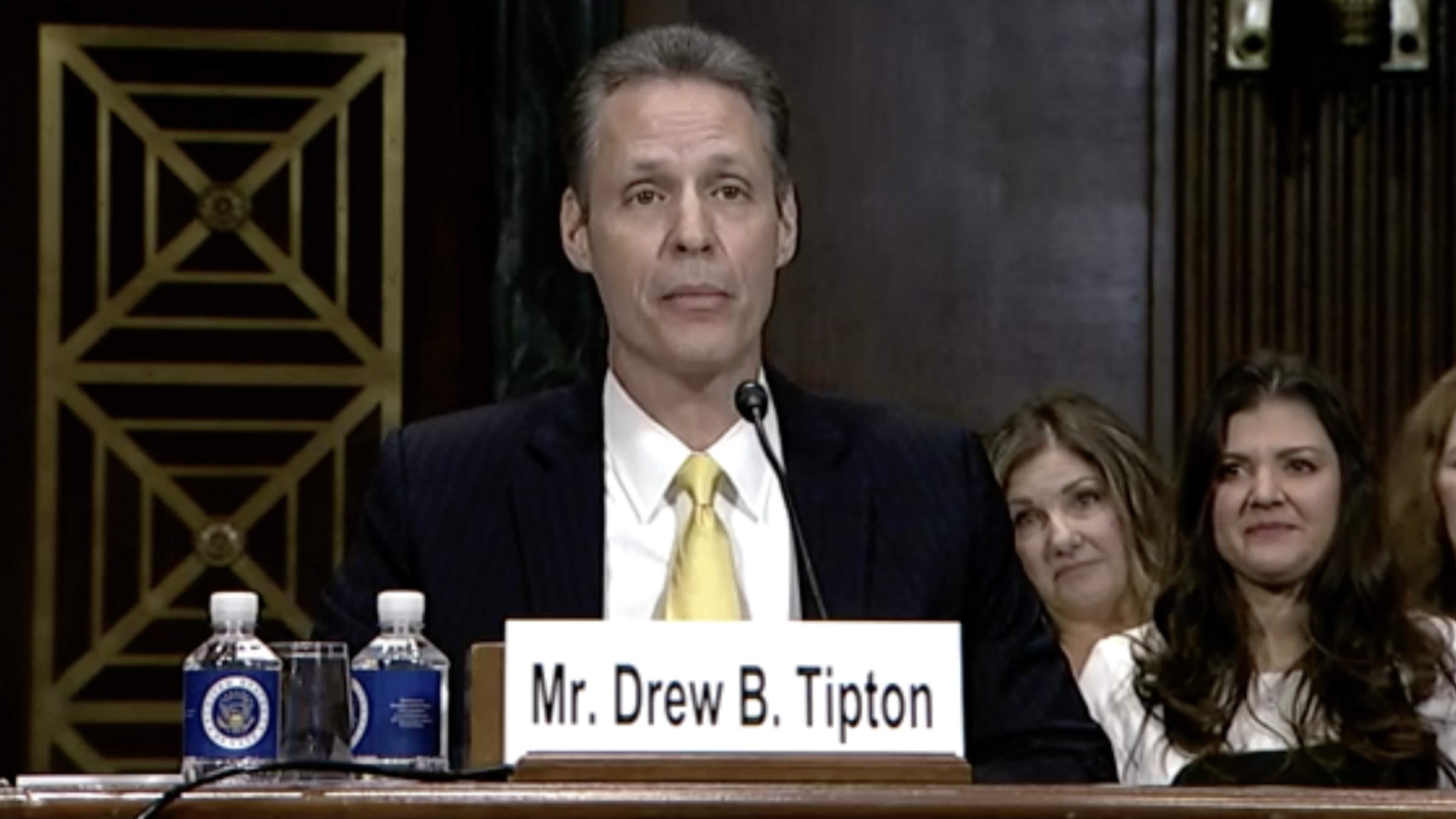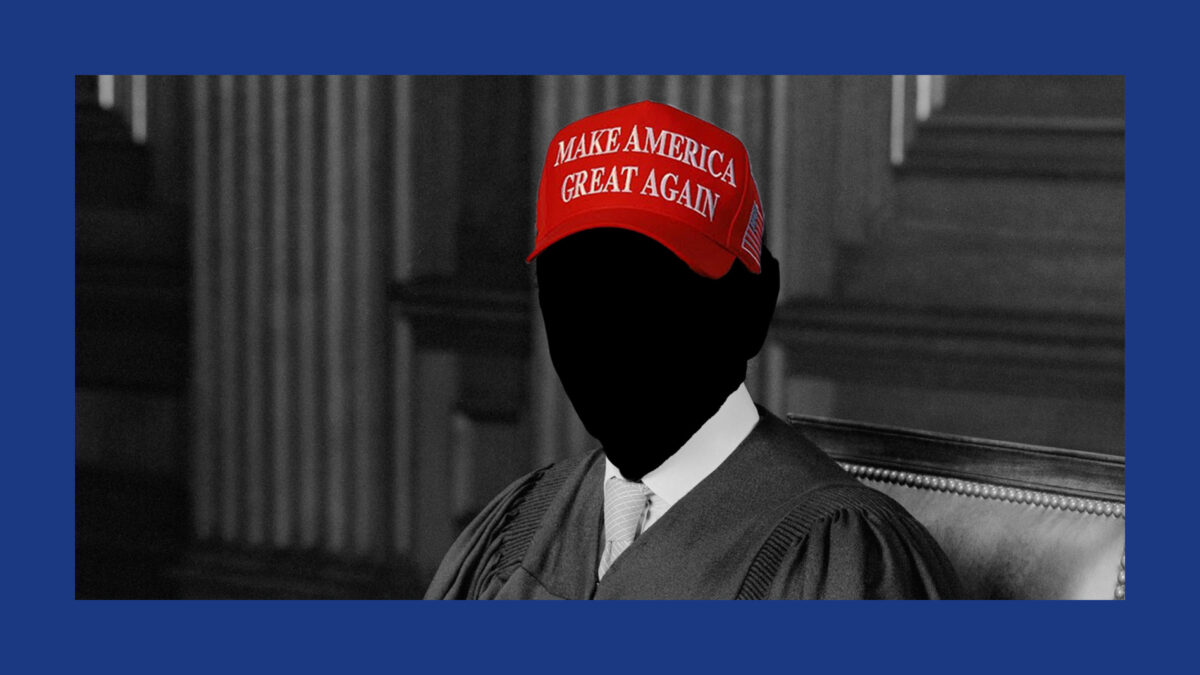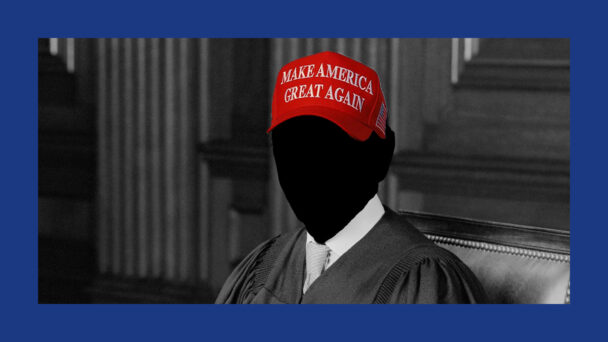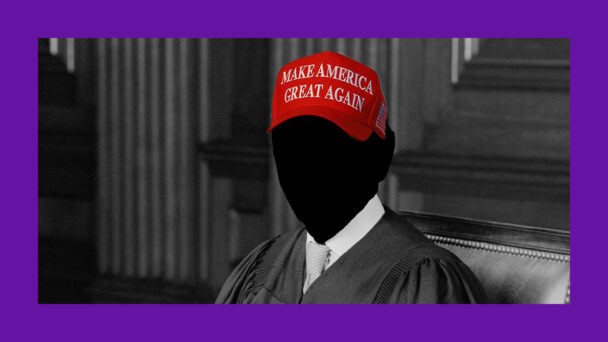Welcome to the FedSoc Twelve, a Balls & Strikes series about some of Donald Trump’s most unhinged judicial appointees. These judges, whether in their legal opinions or their off-the-clock conduct, have continued to push Trump’s agenda from the bench, forming something of a life-tenured Originalism Caucus within the federal judiciary. This summer, we’ll be checking in on these men and women now that they’ve gotten a chance to spread their wings during the Biden administration—and as they fight to be first in line for a Supreme promotion the next time Republicans control the White House.
The Résumé
Born in Texas, Drew went to Texas A&M for college and South Texas College of Law for law school, an average law school with few notable alumni besides a bevy of Texas judges and politicians. After graduating, he clerked for a judge appointed by George H.W. Bush, an average Republican president. Then he worked at a few different law firms before spending 20 years at Baker Hostetler, an average BigLaw firm. He eventually rose to head up the labor group at Baker Hostetler’s Houston office, defending corporations from harassment claims and suing employees who broke non-compete contracts, which is fairly average work for a BigLaw attorney.
Somehow, this average lawyer who had only been a Federalist Society member since 2010 grabbed President Donald Trump’s attention, and Trump nominated him to serve on the District Court for the Southern of District of Texas in 2020. The Senate confirmed him in June of that year by a 52-41 vote.

Tipton at his Senate Judiciary Committee hearing in 2020 (Screencap via CSPAN)
The Opinions
Six months later, that average lawyer seized control of Immigrations and Customs Enforcement (ICE) for over two years.
Let’s back up a little. When President Joe Biden took office, one of his first acts was to pause deportations for 100 days while his government tried to undo some of the damage Trump did to America’s still-very-broken immigration system. Typically, law enforcement agencies have broad discretion to decide against whom to enforce the law, especially in the immigration context. The Supreme Court has recognized that ICE declining to enforce immigration law can be perfectly reasonable, either to save the government’s time or just for humanitarian reasons. And saving the government’s time is no joke—there are millions of people in the United States without papers who are just trying to get by, and nowhere near enough ICE enforcers to deport them all. (Nor should there be!)
But the state of Texas didn’t agree with Biden’s attempt to reset federal immigration policy. Two days after Biden was inaugurated, they filed suit in Tipton’s courthouse. And in this early test of his conservative credentials, he passed with flying colors. In an unprecedented move, Tipton held that federal law required ICE to deport everyone they’ve previously ordered to remove—that is, that federal officials who have extremely broad discretion actually have no discretion. And, although he admitted that nationwide injunctions were “a topic of fierce and ongoing debate,” he decided that the only way to keep the feds honest was to order deportations to resume across the country. Joe Biden had been president for less than a week, and he had somehow lost control of ICE.
After Tipton proved himself there, Texas kept filing cases in his courthouse. Coincidentally, for the past three years, Tipton was the only judge in the Victoria Division of the Southern District of Texas, so he got every case filed there. After the Department of Justice finally got so fed up it started complaining, the chief judge of the district shuffled his judges to put more judges in Victoria and move Tipton out.
Until then, however, Texas knew they had a reliable anti-immigration vote. And they made the most of it. Every few months, the Biden administration issued a new memo setting new immigration enforcement policies, and every few months, Tipton found it unlawful. He would eventually sign multiple orders totaling hundreds of pages of “analysis” repeatedly finding that ICE must deport everyone who could legally be deported, over and over again. It took until June of this year for the Supreme Court to step in, holding in a 5-4 decision that Texas couldn’t prove it was being harmed. In one of Justice Brett Kavanaugh’s more lucid opinions, he wrote that Texas “essentially want[s] the Federal Judiciary to order the Executive Branch to alter its arrest policy so as to make more arrests,” and that Texas couldn’t use the courts to do that. So Tipton finally relinquished control of ICE after only two and a half years.
Of course, that wasn’t the only thing Tipton did with that time. The Biden administration also began a parole program for refugees from Cuba, Nicaragua, Venezuela, and Haiti last year. (Given the crushing sanctions the U.S. imposes on Cuba, Nicaragua, and Venezuela, and our long history of military intervention in Haiti, it’s the least we could do.) Texas filed suit in March of this year, claiming that the Biden administration had failed to consider the harms the program could inflict on Texas. You may recall from the previous paragraph that a few months later, Brett Kavanaugh would ball that argument up and toss it into a trash can. But for some reason, Tipton still hasn’t dismissed this case—he held a trial on it in August, and his final decision is still pending. If he knows how to read, he should toss this case out, too. But for some reason that just seems doubtful.
It’s not just immigration—Tipton has shown that he’ll prevent the federal government from doing anything Texas asks. For example, early in Biden’s term, he issued an executive order raising all federal contractors’ wages to at least $15 an hour—an unambiguously popular and good thing to do, and well within his authority as the person signing those checks. The Department of Labor adopted a rule codifying that order, making it harder for any future Republican president to undo it. And once again—say it with me, now!—Texas filed suit.
Again, standing was Texas’s biggest problem: The state needed to prove it was actually hurt by this wage increase. But that didn’t matter to Tipton, who went down a speculative rabbit hole to conclude that Texas had standing because wages would go up, and people would necessarily have to get fired, and so Texas would need to pay higher unemployment insurance and more Medicaid benefits at some point in the future. (It didn’t matter that Texas couldn’t prove any of that.) After that, Tipton easily disposed of the order by invoking the major questions doctrine, the favorite tool of a Trump judge confronted with a policy they don’t like. That decision dropped last month; the Biden administration has yet to appeal.
The Weird Shit
Unlike most of the other judges in this series, who earned the conservative legal movement’s attention by loudly dabbling in cancel culture hysteria and/or homophobic blogging, Tipton is weird because of how aggressively he kept his right-wing bona fides under wraps.
When the president nominates someone to the federal judiciary, they’re required to respond to a questionnaire from the Senate Judiciary Committee that walks through their background, education, and career. Tipton’s responses show just how boring he made himself in order to sail through this process, like a sleeper agent awaiting activation. According to his answers, he had only ever written one piece outside of his work: an article called “Covering Your Assets” for the Houston Business Journal. No one has ever been more square.
Tipton did teach continuing legal education courses for Houston-area lawyers—courses like “Managing Stress and Work-Life Balance,” “Understanding and Preventing Workplace Harassment,” and “Not So Sweet Revenge: Why You Must Resist the Natural Urge to Retaliate.” But that’s it. Besides that, there’s no indication that Drew Tipton had any thoughts, beliefs, or emotions, or that this perfectly average man would become the Biden administration’s gatekeeper for every immigration decision they tried to issue. Except, of course, that he was nominated by Donald Trump. It just goes to show that it’s not just the identifiable right-wing freaks and outspoken originalists; every single one of Trump’s judges was like this. They’re all waiting for their moment. Tipton just found his moment earlier than some.



